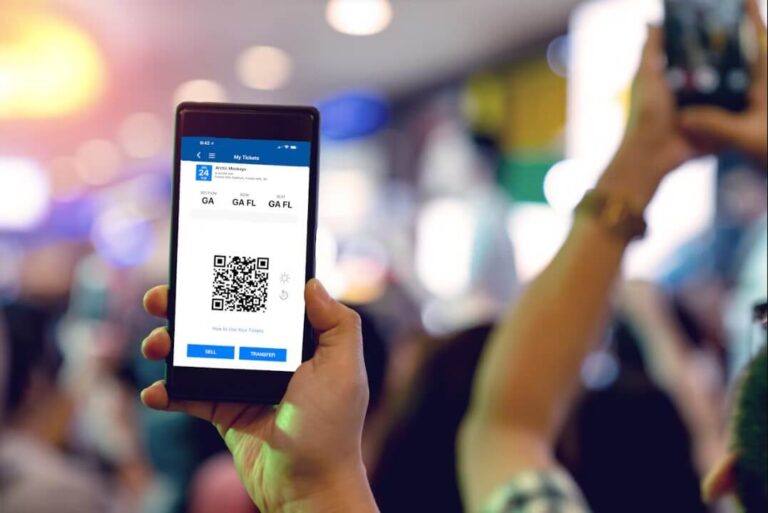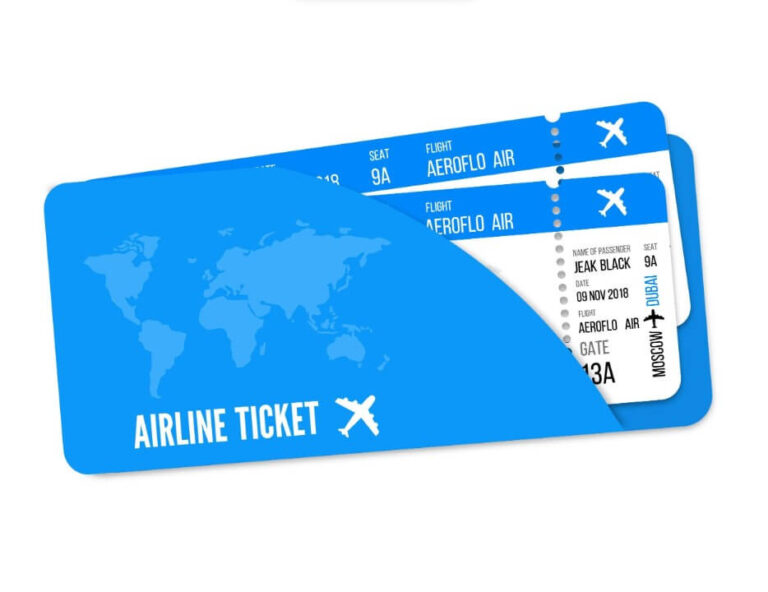
Have you ever found yourself in a situation where you couldn’t use an airline ticket you already purchased and wished you could simply give it or sell it to a friend or family member? As most travelers eventually discover, changing the name on a flight reservation or transferring plane tickets to another passenger is usually not an option with most airlines.
So can you transfer a plane ticket to someone else? The short answer is no, in most cases airlines do not allow travelers to transfer flight tickets to another person due to revenue control and security reasons. However, some budget carriers do permit name changes or transfers for a substantial fee. Read on to learn all the details about airline ticket transfer policies and what your options are when stuck with unusable plane tickets.
This comprehensive guide will cover:
- Why airlines restrict ticket transfers
- How to check if your ticket allows transfers
- What to do with a non-transferable flight ticket
- Transfer policies of major US airlines
- Tips for booking flights to allow flexibility
- When ticket transfers may be allowed
We’ll dig into all these aspects and more so you can understand why you can’t simply give or sell your plane ticket to another passenger when your plans go awry.
Why Most Airlines Prohibit Transferring Plane Tickets?
The first question many travelers ask when discovering their flight tickets have no value to anyone but themselves is: why don’t airlines allow tickets to be transferred? Wouldn’t it be better customer service to permit changes to passenger names even for a fee?
As with most airline policies that seem contrary to passenger interests, the primary driver is revenue protection and control. However, security reasons also come into play when justifying strict name change and transfer rules. Let’s explore a few of the incentives airlines have to maintain ironclad name policies:
Prevent Ticket Speculation and Price Control
Airline fares fluctuate frequently as seat availability in different booking classes changes. If planes allowed free transfers of tickets, it would enable widespread speculation where middlemen could snap up cheap fares and resell at a profit closer to departure. This unauthorized secondary market would undercut the airline’s own pricing strategy for extracting maximum revenue from last-minute travelers needing the flexibility of refundable fares.
Grey Market Crackdown
In the era before stringent ticket transfer restrictions, unofficial grey markets existed where speculators traded airline seats much like event tickets today. But unlike sporting events where attendance is optional, air transportation is often an essential service for travelers. This led to public complaints about inability to book affordable last-minute travel, prompting crackdowns restricting transfers.
Profits from Last-Minute Bookings
Most airlines utilize yield management technology to adjust fares based on demand. As flights fill up, last-minute seats are purposely priced higher to maximize revenue from flexible travelers. If tickets could be freely resold or transferred between passengers, it would undermine attempts to ration affordable bookings early and extract higher fares from late-booking passengers.
Matching Traveler Identity to Tickets
Especially since 9/11, verifying passenger identity has become a security priority for airlines. Enforcing strict name policies ensures the traveler matches credential provided during ticketing and check-in. While not insurmountable with enough personal info provided, name transfers introduce complexity airlines prefer to avoid.
So in summary – revenue protection and pricing control are the main motivators for prohibiting flight ticket transfers between passengers. Security screening provides further justification for refusing flexibility with passenger identity changes on airline reservations.
How Can You Check if Your Plane Ticket Allows Transfers?
Given the strong financial drivers outlined above for restricting transfers, how do you determine if the plane ticket you purchased has any flexibility to change the passenger name? Here are tips to investigate before buying flights or if you need to alter existing bookings:
Examine the Ticket Itself
Carefully inspect all documents provided for your flight booking and look for explicit “non transferrable” or similarly restrictive language:
“This ticket is non-transferable and valid only for the named passenger”
Phrases like this make it clear you have no recourse to change the passenger name under normal circumstances. Terms and conditions definitely matter when it comes to ticket flexibility!
Review Airline Transfer and Cancellation Policies
Most airline websites provide specific details on change and cancellation policies somewhere under “reservations” or “tickets” sections. Sometimes a small transfer fee is permitted, though substantial compared to simply rebooking travel for the correct flyers.
It never hurts to understand the standard name change and cancellation terms enforced by an airline before finalizing reservations. Being informed on standard penalties can also help when asking for a sympathetic agent’s assistance.
Contact Customer Service About Your Options
If existing reservations need to be altered, the only way to determine actual airline transfer policies is asking a customer service agent directly. Make sure to explain circumstances fully when inquiring about transferring a ticket or name change options. Though agents are bound by company procedures, they may suggest creative solutions when contacted early about booking issues.
The key is doing careful research before purchasing flights whenever possible. But even for existing bookings, you won’t know potential options around ticket transfers without engaging directly with airline staff.
What Can You Do With a Non Transferable Plane Ticket?
Let’s consider scenarios where you realize too late that airline tickets can’t be provided to another traveler per name change policies. With non-refundable flights no longer usable personally, do any options exist besides eating the purchase amount?
In some cases YES, depending on provisions made proactively or airline hospitality policies:
File a Claim Against Trip Insurance
Travellers who wisely purchased travel insurance may be covered for flight change fees or even full ticket value recovery under covered circumstances like medical emergencies. Make sure to understand policy terms as some conditions must apply dependant on insurance chosen.
Request Partial Refund of Taxes and Fees
Airfares consist of government taxes, airport fees, and carrier imposed fuel surcharges. While base ticket amounts rarely qualify for reimbursement, a small claims process requesting refunds of excess taxes/fees on unused flights may recover something. Minimum refund amounts and processing fees generally apply however.
So while non-transferrable tickets provide few good options if purchase was not protected by insurance beforehand, it still makes sense checking official reimbursement support channels available. Persistence and politeness when working with airline personnel can sometimes pay off as well in form of travel credits or waived change penalties.
Major US Airline Ticket Transfer Policies
Policies around changing passenger names or transferring flight reservations to another person vary somewhat between major carriers in United States and worldwide. Here’s a brief overview of transfer flexibility among the biggest US airlines:
American Airlines
As the largest airline globally by fleet size, American Airlines only permits ticket changes to different flights for the original passenger. No options exist to transfer reservations to another traveler regardless of reason for the request. Expect fees upwards of $200 for flight adjustments, with basic economy tickets entirely nonchangeable.
Delta Air Lines
Delta does not allow any form of ticket transfers to other passengers. Name corrections are permitted only for minor misspellings that still identify the original flyer. Options do exist for reimbursing unused tickets to original form of payment, less a processing fee that varies based on ticket class. Planning transfers requires cancelling one booking to repurchase flights under correct passenger name.
Southwest Airlines
Southwest is nearly alone among major carriers offering free cancellation within 24 hours of booking, enabling easy repurchase for new passengers if travel plans rapidly shift. The airline issues credit for unused non-refundable tickets to original passenger rather than allowing outright changes. No fees apply for modifying travel dates/times if fare difference is covered by customer, making Southwest highly change-friendly short of transfers.
United Airlines
Like other legacy air carriers, United does not allow passenger name changes or flight reservations transferred to other travelers regardless of reason provided. However, the airline does have generous provisions for cancelling bookings within 24 hours as long as original departure is more than a week in future. This enables complete refunds when needs change shortly after purchasing, though rebooking under different passenger involves repurchasing at current fares.
In summary – among four largest US airlines, only Southwest has flexible policies around cancelling and modifying flight bookings without fees. But no major airline permits anything beyond highly restricted name corrections for the original ticketed passenger. Rules are built strictly around preventing reselling of airline seats rather than enabling transfers.
Tips for Booking Flights Allowing Flexibility
Given most carriers’ unwillingness to facilitate ticket transfers or extensive name changes, what aspects should travelers consider when making reservations to reduce hassles if plans shift?
Carefully Evaluate Change Fees and Rules
Before confirming bookings, review all airline fare rules and projected fees around modification and cancellations. Tables highlighting differences on sites like AirFareWatchdog can greatly simplify comparisons across multiple carriers.
Purchase Refundable Fares Whenever Possible
Typically the most expensive ticket class, refundable fares provide the greatest protection when dates, destinations, or passengers must be altered. Partner frequent flyer points can reduce the sizable premium often charged.
Consider Trip Insurance for Protection
As highlighted earlier, robust travel insurance definitely merits consideration to protect airfare investment against covered situations preventing original passenger from flying. Just make certain policy terms align specifically to your particular cancellation risks.
Avoid Basic Economy Strictly Restricted Tickets
While less expensive, basic economy or ultra low cost carrier tickets frequently permit no modifications whatsoever. Ensure such restrictive ticket types properly align with your tolerance to plans changing when evaluating airfare deals.
The key is weighing additional upfront costs against risks around having no recourse for flight reservations becoming unusable as originally purchased. Travel insurance in particular can provide vital flexibility for minimal incremental premiums.
When Airlines DO Permit Ticket Transfers
So far this article has focused primarily around why and how airlines restrict name changes or transfers to other passengers for airline tickets. But are any exceptions made allowing flight reservations swapped between travelers?
As outlined upfront, a few low cost and international budget carriers buck trends across the wider industry by facilitating transfers – but generally for a steep fee. Here are some examples of airlines occasionally permitting ticket changes:
Budget and Regional Carriers
Some more obscure regional airlines allow ticket holder changes as standard policy, though for a percentage of original airfare often making rebooking more logical. It never hurts asking politely in special situations if fees can’t be afforded however.
Confirmed Passenger No-Shows
If all additional passengers are confirmed but original ticket holder doesn’t fly for some reason, gate agents have more latitude getting remaining parties boarded. But banking on a no-show to enable transfer risks entire party being refused boarding.
Extreme Extenuating Situations
While relying on exception help is never advisable, extraordinary circumstances like immediate medical emergencies or family deaths may warrant specially empathetic assistance from airline personnel. Documented proof supporting claims can help encourage exceptions.
Outside of lesser known niche carriers, travelers shouldn’t expect much flexibility around transferring reservations. But hope isn’t entirely lost for unusual cases legitimately preventing original passenger from flying deserving of airline consideration.
Conclusion: Why Transferring Plane Tickets is Rarely Possible
For most travelers stuck with an unused airline ticket, this article probably confirms suspicions that transferring to another flyer or extensive name changes simply aren’t allowed under normal circumstances. As outlined in multiple sections, airlines reserve right to control seating inventory tightly to maximize revenues.
But the good news is some remedies exist like insurance reimbursements or cancellation fee waivers for the remembering to understand change rules before booking flights. Savvy travelers also consider fees and change policies when comparing airfare deals, especially when flying budget airlines.
While the experience of losing entire plane ticket value due to sudden personal situations is never pleasant, hopefully this guide has equipped you to better evaluate risks in future airline purchases. We all encounter occasional curveballs making flights non usable personally – but various best practices can assure a way out through proper planning and protection.
Safe travels as you move forward with eyes wide open to the largely rigid name policies adopted by airlines! Let us know if you have any other questions around modifying existing bookings or techniques to build in flexibility for future flight reservations.






